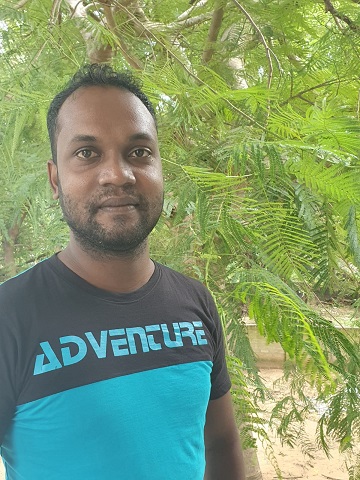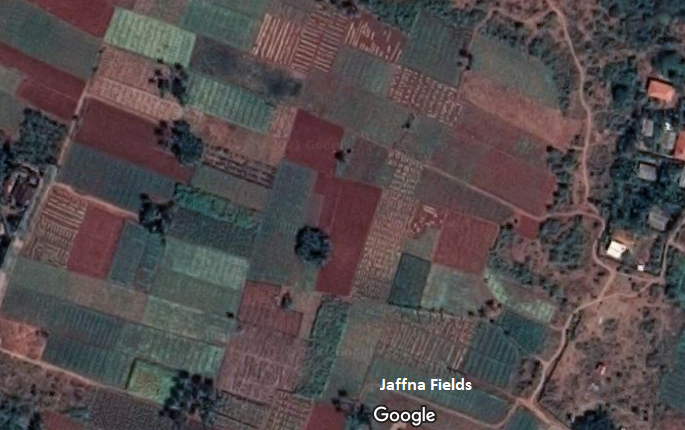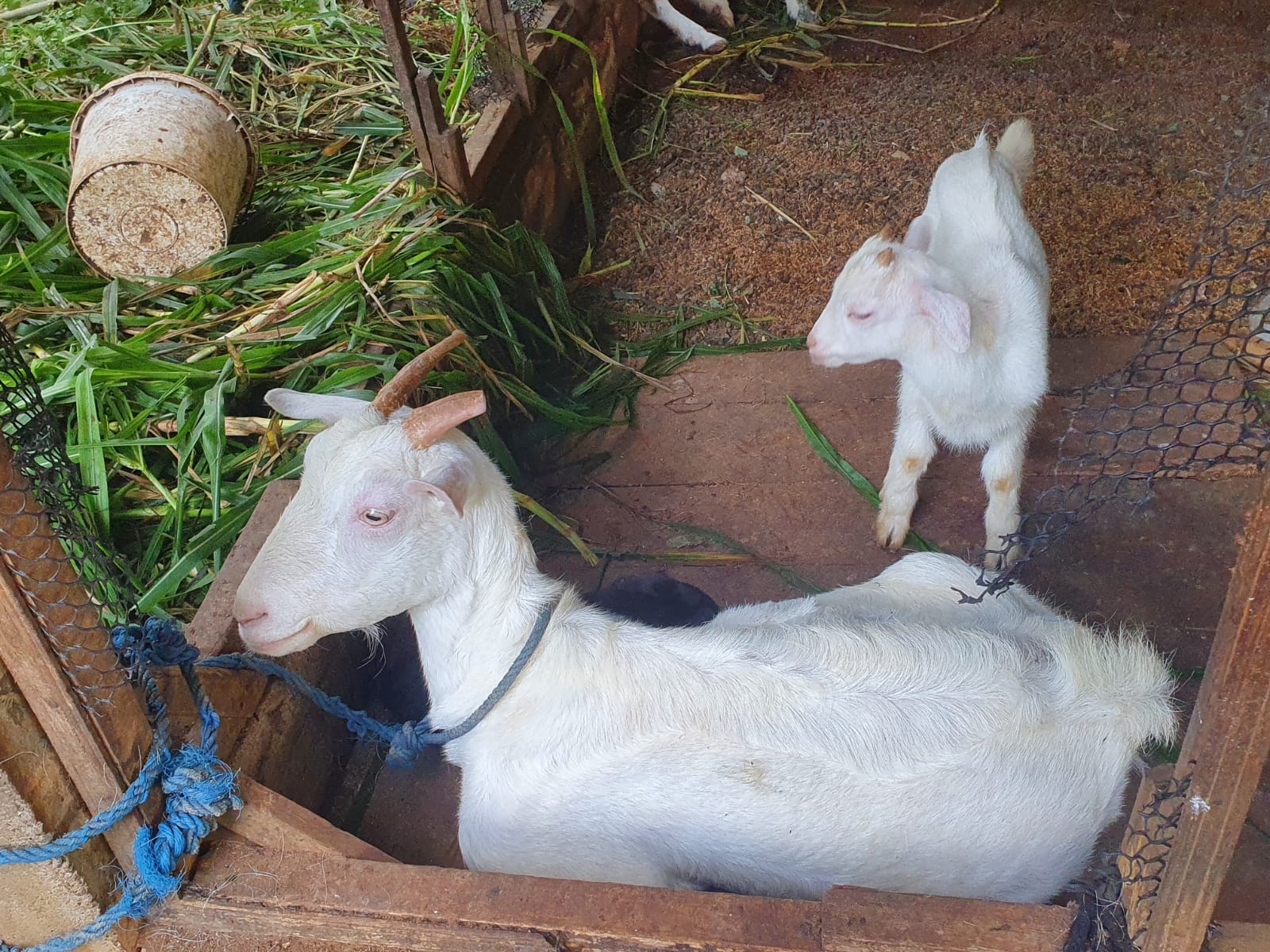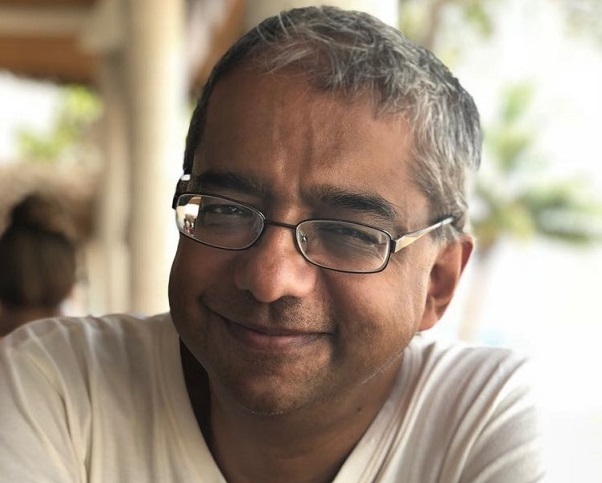By Jekhan Aruliah
There is recent precedent in Sri Lanka for suddenly "going organic”. The Sri Lankan Civil War saw years of economic blockades and embargoes in the North. Some items were totally banned, others were provided in restricted quantities. From ladies’ sanitary pads to batteries to petrol and cement, chemical fertilisers and pesticides many things were difficult to get. What leaked in through informal channels was very expensive. In agriculture the Northern people turned to traditional organic methods. Livestock became more than just a source of food. Livestock became a source of fertilizers, pesticides, and transport. By a stroke of luck I met a young man who had grown up through this period, and has entered a career in agriculture.
I first met Selvin Ravindrakumar early in 2021 when I appealed for help to save a large beautiful shade giving tree in my Jaffna garden. The tree, afflicted by a white fungus for over a year, had been steadily losing its leaves and failing to flower flamboyantly as it had once done. I foolishly waited too long, assuming given time it would recover by itself. When it was alarmingly denuded of foliage and the flowering had failed for a second season I put out an appeal for help on Facebook. Thus Selvin was introduced to me by one of my friends who had been his classmate. Showing it’s not just who you know, but who you know knows that matters.

Having visited to inspect my tree, Selvin took me to meet the head of the Agriculture Research Station Thirunelvely, on Palali Road a few minutes drive from my place. To cut a long story short, an officer from the station immediately came to inspect my tree and recommended a course of treatment. Over the next few days Selvin came and himself applied the medicine. He did this for love of the tree, declining payment. This resulted over the next few weeks in the tree recovering its greenery, and producing a fine flush of bright orange blossoms for the first time in 2 years.
Selvin grew up in wartime Jaffna. He was born in 1992 in Ariyalai, the only child of a member of staff at the Jaffna Kachcheri and a science teacher at one of Jaffna’s leading girls’ schools. His mother, on successfully completing her A’Levels as a schoolgirl, had been accepted to do medicine at Peradeniya University. But being an only child during wartime her father didn’t want her to go. So she remained in Jaffna to become a teacher.
Selvin had developed a great interest in agriculture as a small child helping his mother in her home garden, with its herbs and goats and chickens. From 1998 to 2002, to stay clear of the fighting, Selvin stayed with his aunt in Uduvil a few kilometers north of Jaffna Town. Getting up at 4am to visit her paddy fields before going to school further cemented his connection with the land.
Completing his A’Levels at St Patrick’s College Jaffna, Selvin took the NVQ Level 4 qualification in Agriculture, and spent 6 months working at the Agricultural Research Station Thirunelvelly. He then started a degree course in the University of Colombo. At the time of writing this article, Selvin is a 4th year student doing a Special Degree in Agriculture.
Back To The Future
Selvin explained to cope with the wartime blockades methods from the past were brought back. After the paddy was harvested, grasses like Sunnell (Sun Hemp) would be grown in the fields. Cows would then go onto the fields to eat these weeds and grasses, and poop their fertilizing dung. Crops would be planted, including cow peas, green gram and ulundu lentils. The crops were chosen for their nutritious harvest, and for their nitrogen fixing roots which were ploughed back into the soil. This grand chemical free cycle readied the ground for the next paddy season.
Home produced traditional fertilizers such as Panchakaviya were used. Made by soaking certain leaves, adding curd, milk, jaggary, and cow urine and dung. After 21-30 days brewing in clay pots, occasionally stirred, the concoction is ready to spread on the fields. Neem oil, pressed from the seeds of the Neem (Margosa) tree, diluted with water is an effective pesticide sprayed directly onto insect infestations. The Neem tree is credited with several remarkable properties. As well as agriculture it is used in medicines and cosmetics. Grind young Neem leaves into paste and put on a cut for rapid healing. Even the shadow of the tree is treasured. It is supposed to provide airconditioned cool comfort, cooler than the shades of other trees. There are several Neem in and around my Jaffna garden, which stays surprisingly cool even during the midday sun. Whether credit for the cool goes to the Neem I cannot with certainty say.
There are vast agricultural areas which are a patchwork of smallholdings. Even within a farmer’s own smallholding, he would have half an acre of this, half an acre of that, and an acre of something else. The farmers would cooperate to avoid planting the same crops in adjacent fields, reducing the chance of a blight spreading. What damages chillies may not infect or infest and spread across a field of aubergine.
buy orlistat online buy orlistat online no prescription
Having this patchwork of different crops creates a brake on wider contagion. Farmers would work together by planting Sevanthi, a type of Chrysanthemum, along the borders of their fields. This wide network of Sevanthi smell repels certain insects, reducing the pests across an area beyond their own individual properties.

Through years and generations of experience in their fields the farmers learned how and where best to plant grapes, tobacco, chillie, rasavalli, tomato, ochra, aubergine, sesame and other crops suited to the different soils of the North. They learned how to produce decent harvests without chemicals because chemicals were hardly available during the wartime embargos.
Need for Education
Selvin, who mixes with his fellow undergraduates from across Sri Lanka at Colombo University, commented that many have lost touch with traditional methods. Many have grown up without experience of a home garden let alone a farm. Those who do come from farming families have limited experience beyond reliance on the chemical methods which Sri Lankan governments have been subsidizing since 1962. In 2019 the two main candidates in the Presidential Election promised (but did not deliver) a 100% fertilizer subsidy, i.e. free fertilizer. Some farmers may think if it is cheap and a little is good then more must be better! But it isn’t. What the plants can’t absorb goes down into the soil and the ground water with unintended consequences observed Selvin.
Selvin is a holistic guy, who sees the food cycle running through farms and kitchens and human nature. He said there is a need for education of the producers in their farms, and the consumers in their homes. Farmers should be educated from childhood in the traditional methods. How to produce and use natural homemade fertilizers and pesticides. How to use ‘nitrogen fixing’ plants, composts and manures that can revitalize the soil. How to produce their own animal feed from quick growing vegetation like Azolla and Duckweed which have higher protein content than shop bought mash. How to select disease resistant and high yielding chicken and goats, less reliant on artificial medicines and supplements, such as the Naked Neck chicken, and Jamnapari and Saanen goats.

With Rs500k Selvin says 20 perches (an eighth of an acre) of land can be setup with a herb garden and infrastructure for a few chicken and a couple of goats. Families who take care of their mini farms, enjoying their home produced milk and eggs and greens, will understand the value of their own food waste which can go back to feed their livestock and greenery. According to a 2021 report by the FAO (UN’s Food and Agriculture Organisation) “The total daily solid waste generated in the Colombo Municipal Council area is 706 tonnes of which 50 percent, approximately 353 tonnes, is food waste”. There is enormous potential to recycle this food waste back into the food chain, instead of leaving it to rot and stink in offensive piles and landfills.
Opportunity for Enterprise
I asked Selvin for a straightforward business idea. He proposed setting up a silage (animal feed) producing system. Land planted with areas rotating between legumes, Sorghum, Corn and grasses like CO2/CO3 and Super Napier Grass. The grasses would be planted every few weeks, to become ready to cut across the year on a staggered schedule. 2 acres planted this way would produce enough high quality feed supplement for a herd of cows and goats. The manure from these animals goes back to the grassland. These grasses don’t need much water, so a drip irrigation system would be ideal to keep them growing through the North’s many dry months. The demand for this silage would be enormous, making this a business that can be sustainable, scalable, and profitable.
War and Peace
Consumers in a war zone are different to those in peacetime. In a war zone people are efficient in food preparation and consumption. Minimal waste during cooking. Minimal waste throwing uneaten food at the end of the meal. Less waste means the volume of produce the farms need to grow in wartime to feed the people is less. At a national level food is wasted not only by thoughtless preparation and careless disposal. Food is wasted due to damage transporting produce in sacks and trailers and trucks long distances down the supply chain from the farm to the wholesaler to the retailer to the consumer. Losses during storage in warehouses, on market floors, shop shelves and kitchen refrigerators. At a national level far more must be grown for human consumption than is consumed by humans.
Wartime solutions are rarely peacetime answers. But the need for high efficiency and high impact during the terrible times of conflict can provide some guidance for the easier times of peace.
You can contact Selvin at selvinansteen@gmail.com
( — The writer Jekhan Aruliah was born in Sri Lanka and moved with his family to the UK when he was two years of age. Brought up in London, he graduated from Cambridge University in 1986 with a degree in Natural Sciences. Jekhan then spent over two decades in the IT industry, for half of which he was managing offshore software development for British companies in Colombo and in Gurgaon (India). In 2015 Jekhan decided to move to Jaffna where he is now involved in social and economic projects. He can be contacted at jekhanaruliah@gmail.com — )

